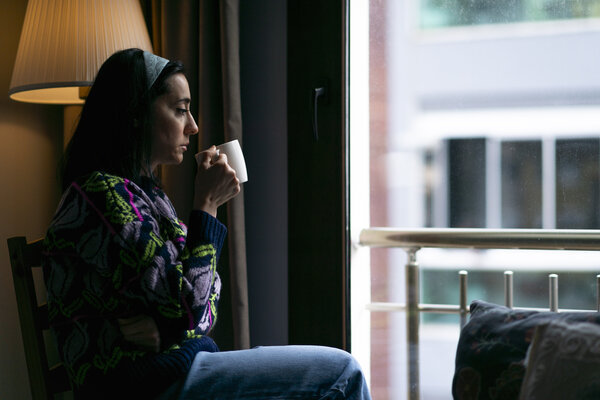According to Dr Michael Slepian from Columbia Business School, on average we keep 13 secrets at any one time. Sounds like a lot, right? But a secret could be anything from negative thoughts about your body to serious addiction.
Based on research and the results of a survey into secret keeping, Slepian concludes there are 38 categories of secrets. The most common ones include ‘extra-relational thoughts’, sexual behaviour, emotional infidelity, theft, and personal history. The least common: drug use, work discontent, pregnancy, surprise, and marriage proposal.
What makes a secret a secret?
Dr Katie Greenaway, senior lecturer at the Melbourne School of Psychological Sciences, says that many people think of secrecy as concealment, but it can be much more complex.
“We can have secrets we never have to conceal from others so long as we intend for that information to remain secret,” says Greenaway.
“Take for example cheating on a test; it never comes up in conversation, so we never have to conceal it, but we still intend for no one to find out about it.”
Why do we keep secrets?
According to Greenaway, we keep secrets for social reasons. In a study she conducted with Slepian, they asked 1,000 people who secretly voted for a candidate in the 2016 United States presidential election why they concealed their vote. There were three motivations. The first was to maintain social harmony and avoid social conflict with others. The second was to protect their reputation and to avoid worrying what others would think of them. And the third was to feel a sense of belonging to certain groups, which meant they were worried their secret would make them feel excluded or ostracised from friends or family.
What stood out in the study was this: participants who wanted to maintain harmony and avoid social exclusion concealed their secrets more often than those who were worried about protecting their reputation. However, those concerned about protecting their reputation were more likely to think about their secrets and ruminate on them. This is where secrecy can impact our mental health.
When secrecy is impacting someone’s mental health, the signs to look out for can vary from person to person. These might include changes in behaviour, feeling anxious or depressed, sleeping problems, and emotional outbursts. Knowing the signs of declining mental health can help you look out for yourself and your loved ones.

24/7 Medibank Mental Health Support
Medibank health insurance members can talk with a mental health professional over the phone or online in relation to any mental health or emotional concern at no extra cost.* Chat 24 hours a day, 7 days a week on 1800 644 325 or log in to My Medibank.
* Some referred services may involve out of pocket costs and waiting periods may apply.
Emotional responses to secrets
Greenaway explains in one of her University of Melbourne lectures that the types of secrets we keep don’t necessarily determine the severity they can have on our mental health.
“It’s not that certain types of secrets are likely to have a detrimental impact on our wellbeing, it’s the degree to which you are keeping it secret, it’s the degree to which you think it’s important and impacts on your life.”
For example, not telling a partner about a speeding fine may feel insignificant to one person yet detrimental to another because of financial difficulties or the need for a driver's licence for work.
That said, different secrets can elicit different emotions. Slepian outlines three primary ways we think about our secrets. The first involves immoral secrets like theft or infidelity; when we hide this kind of information it can cause us to feel ashamed. The second way is feeling isolated, often due to individual secrets or personal goal-orientated secrets, like striving for success in our careers but worrying we won’t achieve it. Thirdly, emotional secrets, like having a family secret we lack insight into, can cause feelings of uncertainty.
How severely our secrets impact our wellbeing is also determined by who we conceal them from. Withholding personal information from important people in our lives can lead to a greater impact on our psychological wellbeing.
Should we divulge our secrets?
Besides from wanting to get it off your chest and not live alone with it, the most common reason people reveal a secret is to get help. When we give up a secret, it can help us feel less alone. What’s more, sharing a secret is a step towards getting help or emotional support, say through therapy or counselling.
However, Greenaway thinks we should not always reveal our secrets.
“Secrecy can be very necessary in certain cases, like not wanting to hurt someone’s feelings, and it’s important in these cases that people know how to manage the psychological effects.”
If you don’t feel comfortable talking about a secret, Greenaway offers other strategies that can help:
- Get insight into your secret and think about what the consequences would be if you disclosed it.
- Seek support from others by sharing your emotions but not revealing the information you want to conceal.
- Tell your secret to a mental health professional and discuss ways to help you navigate the complexities of disclosing the secret.
Many of us care deeply about our secrets, which is why we think about them more than we conceal them, but if a secret is eating you up inside, it’s probably not worth keeping it to yourself.

